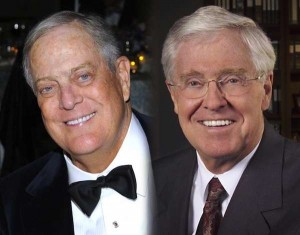
Exclusive: The concentration of power in the hands of billionaire “oligarchs” may be most alarming in places like Ukraine but the United States is moving in the same direction as wealth is consolidated at the top — and both elections and media are up for sale, says Robert Parry.
By Robert Parry
The chaos in Ukraine can be viewed, in part, as what happens when a collection of “oligarchs” – sometimes competing, sometime collaborating – take control of a society, buying most of the politicians and owning the media. The political/media classes become corrupted by serving their wealthy patrons and society breaks down into warring factions.
In that sense, Ukraine could be a cautionary tale for the United States and other countries that are veering down a similar path toward vast income inequality, with billionaire “oligarchs” using their money to control politicians and to pay for propaganda through media ventures.
Depending on your point of view, there may be “good oligarchs” and “bad oligarchs,” but the concept of oligarchy is antithetical to democracy, a system in which governance is supposed to be driven by the informed consent of the majority with respect for minority rights. Instead, we’re moving toward a competition among oligarchs with the “people” mostly as bystanders to be manipulated one way or the other.
On Wednesday, a 5-4 majority of the U.S. Supreme Court lifted limits on total amounts that an individual can contribute during a campaign cycle, an extension of the 2010 ruling on Citizens United allowing the rich to spend unlimited sums on political advertising. It was another step toward an American oligarchy where politicians, activists and even journalists compete to satisfy one “oligarch” or another.




